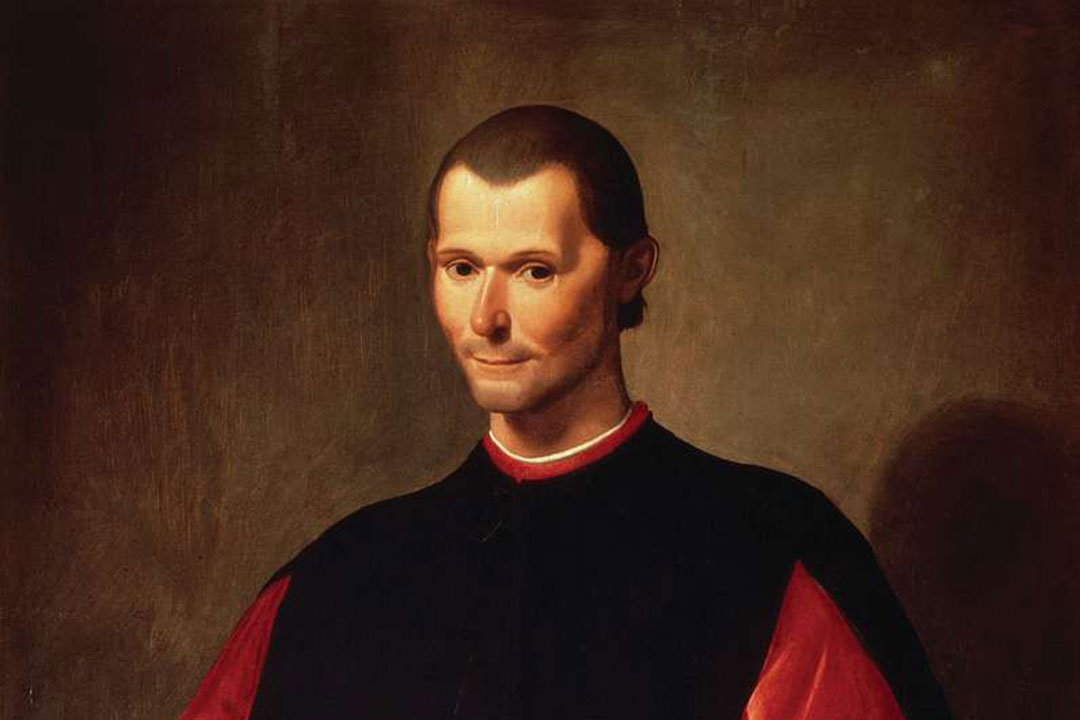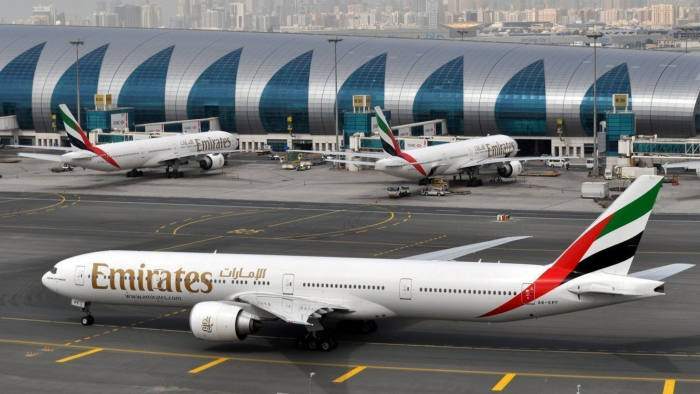By BusinessWorld,Cedtyclea
Copyright bworldonline

Niccolò Machiavelli was a Florentine diplomat, author, philosopher, and historian who lived during the Italian Renaissance. He is best known for his political treatise, The Prince (Il Principe), published in 1532, for which he has often been called the “father of modern political philosophy and political science” by modern-day political thinkers.
Such an honorific was earned by this self-made political philosopher who strategized his own survival and positioning in the shifting politics of his time. Historian Maurizio Viroli, in his biography of Machiavelli, relates that Machiavelli was born in a tumultuous era. As a secretary (historian) in the court, Machiavelli witnessed firsthand the state-building methods of Pope Alexander VI (head of the Catholic Church, ruler of the Papal States, and leader of the Holy League with European rulers) and his son, Cesare Borgia. Note that Rodrigo Borgia was appointed cardinal when he was barely in his twenties by his uncle, Pope Callixtus III, and he rose to the papacy after the death of Pope Innocent VIII as the most senior, most powerful cardinal, aligned with the emperors of Europe at that time. As Pope Alexander VI, he made his son, Cesare, cardinal and supreme military commander of papal forces that conquered opposing regimes. These nepotistic appointments by dynastic rulers were characteristic of the era.
Machiavelli personally witnessed the brutal retribution Cesare Borgia inflicted on his rebellious commanders and emphasized “the danger of offending a ruler and then expecting to trust him afterward.” Rodrigo and Cesare Borgia may have set the prototype for Machiavelli’s The Prince — of “political leaders by birth and destiny” who ruled by “the end justifying the means” on subjects who were cowed into submission by fear more than love and allegiance.
When Pope Alexander VI died, a proper papal conclave ultimately selected Julius II — who was a bitter rival of the Borgia family — as pope. Machiavelli still tried to ingratiate himself with the new “Princes,” the Medicis. He redirected his already-started The Prince, and dedicated it to Guiliano de Medici, the new co-ruler of the Florentine Republic with his brother, Lorenzo the Magnificent. Guiliano was “The Prince” to whom Machiavelli wrote his radical political prescriptions for tyrannical, amoral, and enduring power in position. It is said that Guiliano never read Machiavelli’s The Prince.
Changing loyalties of both ruler and the ruled is one of the political realities exposed and warned against in The Prince. “People are loyal only when it suits them,” Machiavelli cautioned. In reality, self-interest drives allegiances and alliances; beware of appearances and false declarations of love and admiration.
Is it better for a “prince” to be feared or to be loved? Machiavelli’s reply: “Since it is difficult for a ruler to be both feared and loved, it is much safer to be feared than loved, if one of the two must be lacking. For this can generally be said of men: that they are ungrateful, fickle, liars and deceivers, avoiders of danger, greedy for profit; and as long as you serve their welfare, they are entirely yours, offering you their blood, possessions, life and children… when the occasion to do so is not in sight; but when you are faced with it, they turn against you…For men are less concerned with hurting someone who makes himself loved than one who makes himself feared, because love is held by a link of obligation which, since men are wretched creatures, is broken every time their own interests are at stake; but fear is held by a dread of punishment which will never leave you.” Always remind everyone of your power.
So, “Prince,” go ahead with whatever you need to do, to keep yourself in power, Machiavelli exhorts. In chapters three, five, and eight,, he explicitly says that fraud and deceit are necessary for a prince to use. Violence is needed for the stabilization of power and the introduction of new political institutions. Force may be used to eliminate political rivals, destroy resistant populations, and purge the community of other men strong enough of a character to rule, who will inevitably attempt to replace the ruler. Politics have no relation to morals, Machiavelli infamously said.
In 1559, the Catholic Church (Pope Paul VI) banned The Prince, putting it on the Index Librorum Prohibitorum, the list of publications that Catholics were forbidden to read. In the 16th century, Catholic writers “associated Machiavelli with the Protestants, whereas Protestant authors saw him as Italian and Catholic.” In fact, he was apparently influencing both Catholic and Protestant kings, Robert Bireley analyzed in his book, The Counter Reformation Prince (1990). The Prince was spoken of highly by Thomas Cromwell in England and had influenced Henry VIII in his turn towards Protestantism and his serial divorce, beheading, or otherwise disposing of six wives.
“Why are we still reading this book called The Prince, which was written 500 years ago,” a Yale University essay asks? (Jan. 1, 2011). Machiavelli is not interested in talking about ideal republics or imaginary utopias, as many of his predecessors had done: “There is such a gap between how one lives and how one should live that he who neglects what is being done for what should be done will learn his destruction rather than his preservation.” This is Machiavelli’s political realism — his intention to speak only of the “effectual truth” of politics, “so that his treatise could be of pragmatic use in the practice of governing.”
Are we still focused on the opportunistic use of power and influence in position? That is exactly the definition of “Machiavellianism” as “the name of a personality trait construct characterized by manipulativeness, indifference to morality, lack of empathy, and a calculated focus on self-interest,” as described by psychologists Daniel and Delroy Paulhus in Machiavellianism (2009).
Machiavellianism is the antithesis of good governance in today’s rights-focused democracies. Yet it thrives, perhaps because of the realities of shifting economics, and the overriding need to “maximize scarce resources” for individual survival and improvement, as espoused by the economist Adam Smith (1776).
It is said that there are almost 250 political families, referred to as “political dynasties,” that control all 82 provinces of the Philippines at all levels. The “taipans,” the cartel of mixed political and business oligarch families which control politics and own various crony capitalist businesses, has reshaped political alliances, according to the Manila Times of Sept. 16, 2020. (Recall the nepotism and dynastic rule in Machavelli’s time.)
According to a Philippine Star editorial on July 15, 2024: “Dynasty building undermines the criminal justice system, with clans controlling the police, prosecution, judiciary and jail facilities in their turfs. This has engendered impunity, as the nation has seen in so many brazen political killings.” There are many unresolved cases of stolen wealth and plunder, extrajudicial killings, oversized confidential funds, pork barrel, and bribery scams pending or still unfiled.
During his fourth State of the Nation Address (SONA) on July 28, President Ferdinand Marcos, Jr. ordered an audit of flood control projects under his administration, as he denounced the corruption that caused people to suffer from recurring flash floods during heavy rains.
Between July 2022 and May 2025, the first three years of the Marcos Jr. presidency, the government funded 9,855 flood-control projects worth over P545 billion. Massive flooding in recent months has brought these projects under the harsh glare of public scrutiny, with allegations of substandard work and links to corrupt practices.
An initial audit flagged projects collectively worth more than P350 billion ($7.11 billion) which did not specify the exact flood control structure built or repaired, as well as several projects at different locations which disclosed identical designs and materials. Ghost projects were revealed.
The Department of Public Works and Highways (DPWH) identified a total of 2,409 contractors for both local and national flood control projects.
President Marcos Jr. disclosed that an initial review found that P100 billion worth of projects — 20% of all flood control projects in the past three years — were undertaken by only 15 contractors.
Senator Panfilo Lacson said as much as 60% of infrastructure funds could go to “commissions” and off-the-books payments to legislators, public works officials, auditors, and others. “The pie-sharing varies depending on the level of greed,” he said.
The Machiavellian level of greed was first unmasked by a rerun of a video by Korina Sanchez on Korina Interviews and another by Julius Babao for his YouTube channel which both showcased the fantabulous house and 40 luxury cars of the couple Sarah and Curlee Discaya. It seemed to be a feel-good, rags-to-riches story, until Korina asked Sarah, “Where did all this wealth come from?” “From the DPWH,” was Sarah’s forthright reply, as she explained that the reason why they have this many cars is also to show their clients their “capacity to execute a project” (Philippine Star, Aug. 8).
It is, again, the Machiavellian model of power through structured interdependencies and rewarded allegiance to the “princes,” the powers-that-be in the self-centered bureaucracy that tapers to the top. In the Senate Blue Ribbon Committee that is building up the facts of the flood control projects issue, bigger and bigger names are being implicated, as selected witnesses tell on each other and insinuate the Machiavellian ruthlessness towards self-aggrandizing wealth and continued power. Those high-ranking officials who might be connected to the DPWH anomalies have resigned or were quietly relieved of their positions.
“You can always be a generous giver when what you give is not yours,” Machiavelli says of the sharing of what is plundered by princes. But you should not “load your people with exorbitant taxes and squeeze money out of them” to fund your generosity, Machiavelli warns.
The Filipino people are angry with the greed and corruption in government. The people know that it is their tax money that has been stolen in this systemic plunder of the flood control funds. A big protest rallies were held at the Luneta and the historic EDSA monument beside Camp Aguinaldo yesterday, Sept. 21, the anniversary of Marcos Sr.’s Martial Law which was declared 53 years ago.
Floods are upon Machiavelli’s new “princes.”
Amelia H. C. Ylagan is a doctor of Business Administration from the University of the Philippines.



